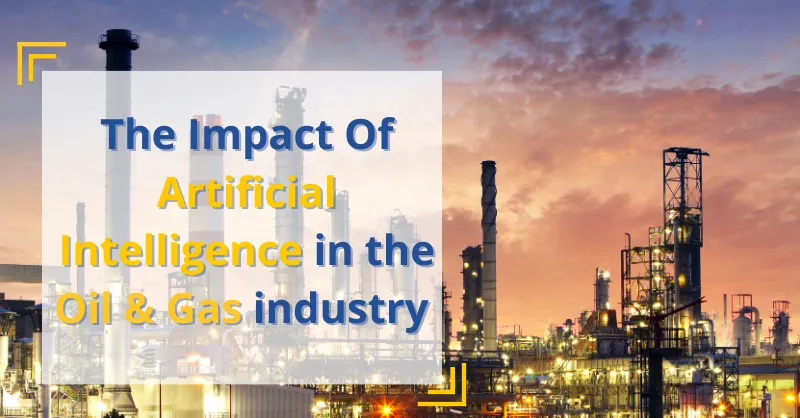In an industry as vast and impactful as oil and gas, staying at the forefront of technological innovation is not just beneficial; it’s a necessity. The sector, known for its complex operations, hazardous environments, and fluctuating market dynamics, has reached a pivotal juncture. The era of digital transformation in oil and gas is upon us, introducing profound changes in how the industry operates, optimizes, and even visualizes its future. Central to this transformative wave is Artificial Intelligence (AI), a force potent enough to redefine paradigms and unlock unprecedented efficiencies in this energy mainstay.
Understanding the Power of AI in Modern Energy Sectors
Artificial Intelligence, or AI, refers to the simulation of human intelligence processes by machines, especially computer systems. These processes include learning, reasoning, problem-solving, perception, and even the ability to manipulate and move objects. The application of AI isn’t new; it’s been a transformative element across various industries, from retail to healthcare, finance to entertainment. However, its penetration into the oil and gas sector marks a revolutionary stride, one where AI’s ability to process massive datasets, predict outcomes, and optimize operations meshes perfectly with the industry’s scale, complexity, and constant push for efficiency.
Digital Transformation in Oil and Gas: A Necessity
The concept of digital transformation transcends the mere adoption of digital technologies. It represents a radical rethinking of how an organization uses technology, people, and processes to fundamentally change business performance. In the context of oil and gas, this transformation becomes critical. The current global energy landscape is marked by volatility, environmental concerns, and the relentless pursuit of efficiency and sustainability. Here, digital transformation in oil and gas isn’t just about staying current; it’s about survival, evolution, and setting the stage for a more sustainable and efficient future.
Practical Applications of AI in Oil and Gas
AI’s foray into oil and gas isn’t theoretical; it’s practical, tangible, and increasingly pervasive. From exploration, where AI algorithms process seismic data to identify potential hydrocarbon deposits, to drilling, where AI-driven robots perform high-risk operations in some of the most inhospitable environments on earth. Production optimization, supply chain management, predictive maintenance, safety, and compliance — every facet of the industry is experiencing AI’s transformative touch. Real-world examples abound, painting a compelling picture of AI not just as a facilitative technology but as a critical driver of performance, safety, and sustainability.
Challenges and Opportunities in Implementing AI
However, the path to AI integration isn’t without its hurdles. Traditional operations, legacy systems, workforce apprehensions, and initial investment costs pose significant challenges. Yet, the opportunities AI presents — in enhancing precision, improving safety, reducing downtime, and even in creating new value streams — are leading the industry to overcome these barriers. The narrative isn’t about replacing the human workforce but empowering it through data-driven insights and decision-making.
The Future of AI in Oil and Gas
Looking ahead, AI’s role in oil and gas seems not just secure but primed for expansion. The technology’s future in the sector is linked with predictive analytics, deep learning, and robotics — areas poised to further revolutionize operations, management, and even market forecasting. The potential applications are vast, signaling a future where AI is entrenched at the heart of the industry’s modus operandi.
Conclusion
As we stand on the cusp of this technological revolution, the message is clear: the digital transformation in oil and gas, with AI at its helm, isn’t just imminent; it’s imperative. The sector’s future will be characterized by those who embrace this change, innovating and evolving not just for greater profitability, but for a safer, more sustainable, and efficient operational future. The time to harness the transformative power of AI in oil and gas is now — a journey of profound change, unlimited potential, and revolutionary impact.

